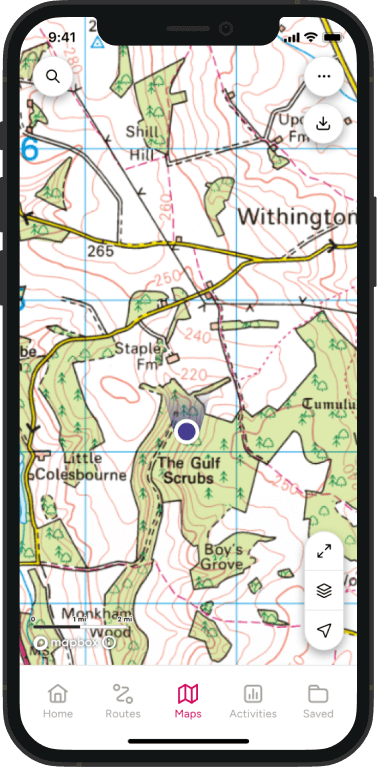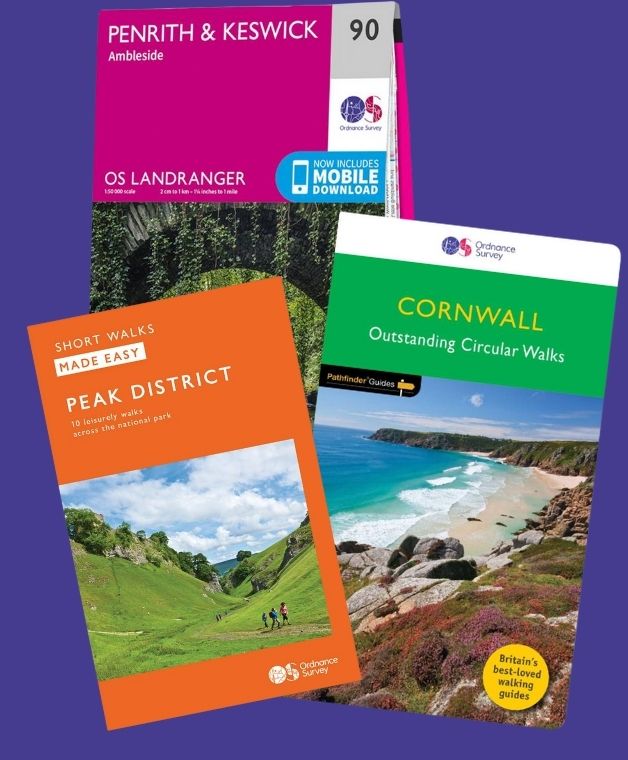Stay safe in the outdoors
Mountain Rescue England and Wales share their expert advice to help you stay safe outdoors. Find out how to plan ahead, stay safe on the hills and how to call Mountain Rescue in an emergency.
There are 47 mountain rescue teams across England and Wales and about 3,500 Mountain Rescue volunteers. They are available 24 hours a day, 365 days a year, for anyone needing assistance on the hills. The service is free to the casualty and teams rely on public donations and fundraising. You can find out about ways to support them on the national website, https://www.mountain.rescue.org.uk.
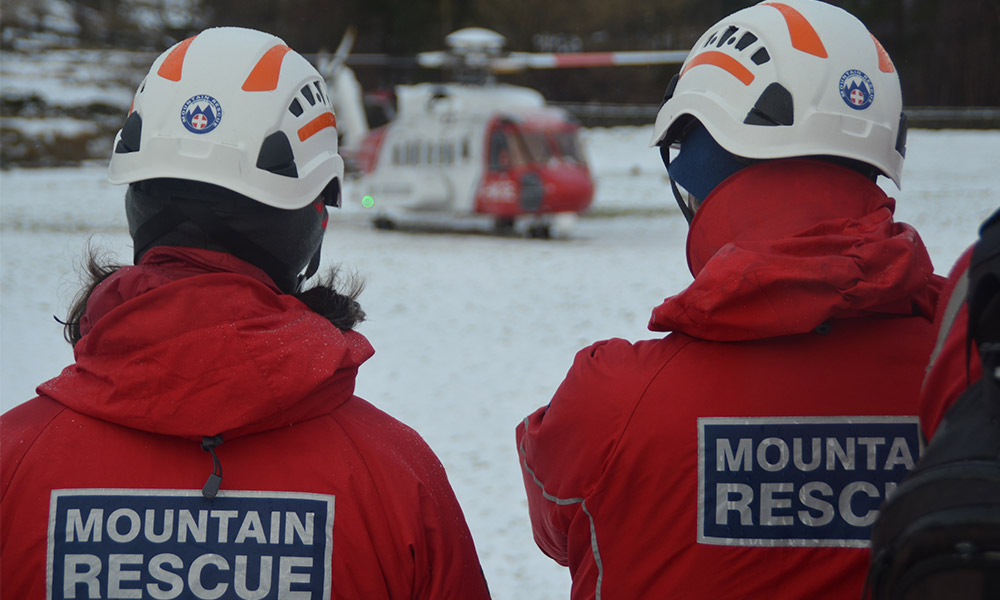
Mountain Rescue Volunteers
In an emergency, contact Mountain Rescue by ringing 999 or 112 and ask for the Police. Then ask for Mountain Rescue and the Police will call them out. You will need to provide your location and a grid reference is recommended – there are apps like OS Locate, to give you that but a paper map is the reliable option that doesn’t need batteries or charge.
Remember, do NOT change position until contacted by Mountain Rescue.


“In an emergency, ring 999 or 112, ask for police and then ask for Mountain Rescue.”

So, now you know how to call out Mountain Rescue, but you’ll have a much better day if you plan ahead and can keep yourself and your party safe. Set out well-prepared for whatever you plan – mentally and physically, as well as kit-wise. #BeAdventureSmart and make your good day better.
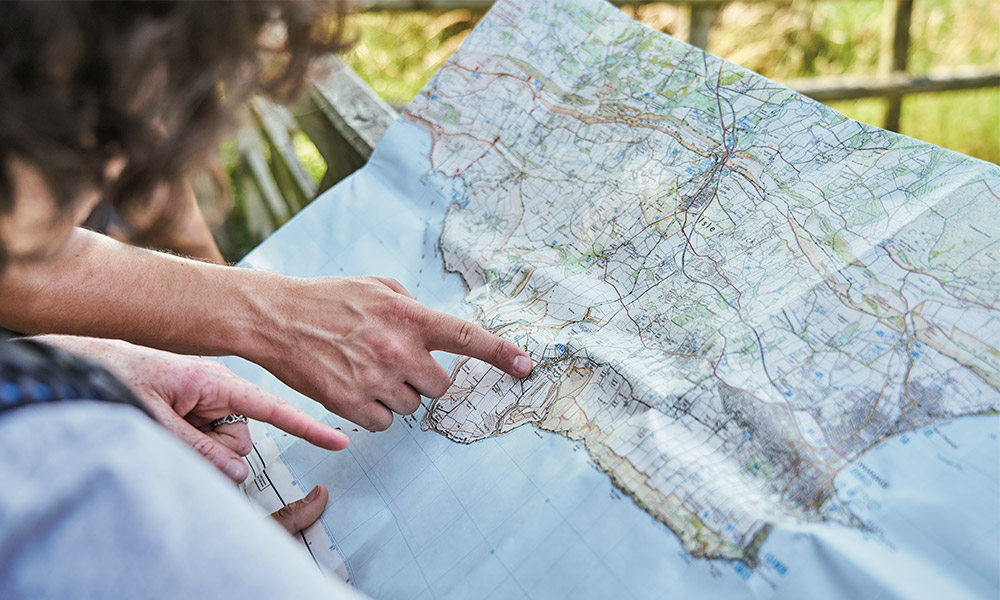
You can always rely on a paper map
Before you set out
Charge your phone
Many accidents occur towards the end of the day when both you and your phone are low on energy. Register your phone with emergencysms.org.uk and consider keeping one phone in your group for emergencies. Make sure you can use your phone for what only a phone can do!
Plan your route carefully
Consider the time of year, terrain and the nature of your trip and choose your route accordingly. Think about the weaker members of your group and consider alternatives in case of tiredness or bad weather. Remember: mountains are major undertakings and in winter, it gets dark early!
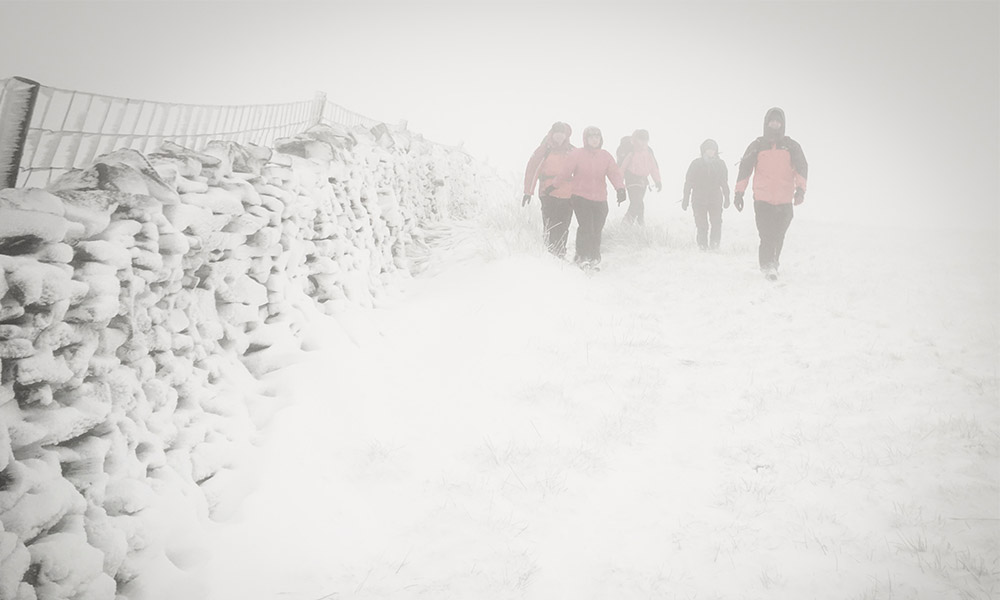
Always check the weather forecast
Check the weather
You can check weather and conditions online via Weatherline (for the Lake District), MWIS (mountain weather information across the UK), Met Office (general weather), and the Scottish Avalanche Information Service (SAIS) (for avalanche conditions in Scotland).
Leave details of your route plan
Include start and finish points, estimated time of return, any planned alternatives and contact details — and leave your note in a reliable place in case of an emergency.
Out on the hills
Keep an eye on the weather
Be prepared to turn back if conditions turn against you, even if this upsets a long-planned adventure. The hills will always be there and you want to be enjoying them for years to come.


“Be prepared to turn back if conditions turn against you, even if this upsets a long-planned adventure.”

Keep the party together
Allow the slowest in the party to determine the pace and take special care of the youngest, weakest and least knowledgeable in dangerous places and on your descent as they get tired.
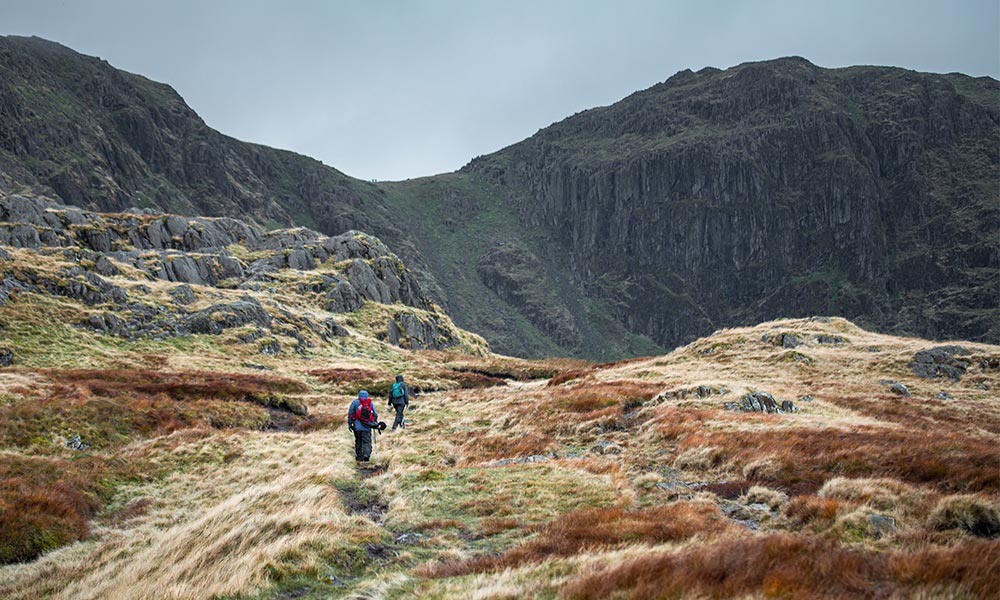
Always stick together
Drink plenty and eat well through the day
Before you start and throughout the day, keep your energy levels high to get the most out of your day.
Watch for signs of hypothermia
Disorientation, confusion, shivering, tiredness, pale complexion and loss of circulation in hands or toes. Children and older people are especially susceptible so be aware.
And, if you go out alone…
Be aware of the extra risk. Let people know your route and when you expect to finish and then stick to it as far as you can. If your plans change, let them know that too.
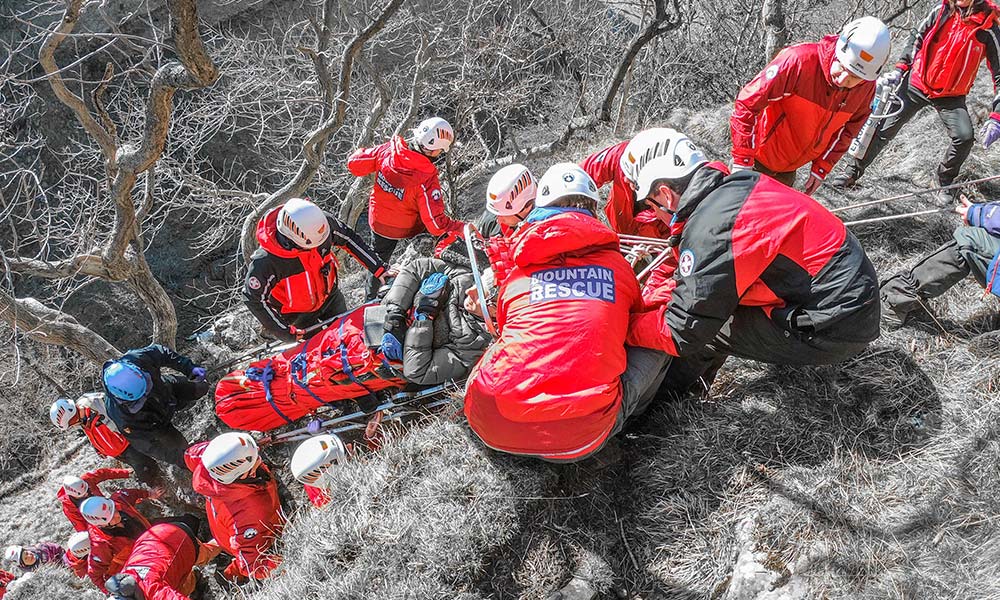
Mountain Rescue in action
In case of an emergency
Make a note of all relevant details: Location; name, gender and age of casualty; nature of injuries or emergency; number of people in the party; your mobile phone number. Dial 999 or 112. Ask for ‘Police’ then ‘Mountain Rescue’.
Make sure you tell the operator that you wish to speak to the Police. Give all your prepared details of the incident. Do NOT change your position until contacted by the rescue team. If you have to make a further 999 call, repeat this procedure.
If you have hearing or speech difficulties, you can contact the 999 emergency services by text. You will only be able to use this service if you are registered with emergencySMS first. Register now – don’t wait for an emergency! Text ‘register’ to 999 and follow the instructions. In an emergency, contact the emergencySMS service by texting 999.
What to take with you
• Suitable clothing and footwear including spare clothing, hat and gloves – even in summer as it’s colder and could be windier on the tops.
• Ample food and water for the day ahead – even in cool weather, it’s easy to get dehydrated.
• Map and compass, mobile phone, torch and spare head torch. And a whistle. And possibly a power pack for your phone too.
• At least one member of the party should have a watch.
• First aid kit including essential medication.
• Climbers and mountain bikers should wear a helmet.
Both a torch and whistle can be used to signal for help: Six good long blasts in a minute. Stop for one minute. Repeat. Continue until someone reaches you and don’t stop because you hear a reply. Your whistle blasts may be a direction finder.
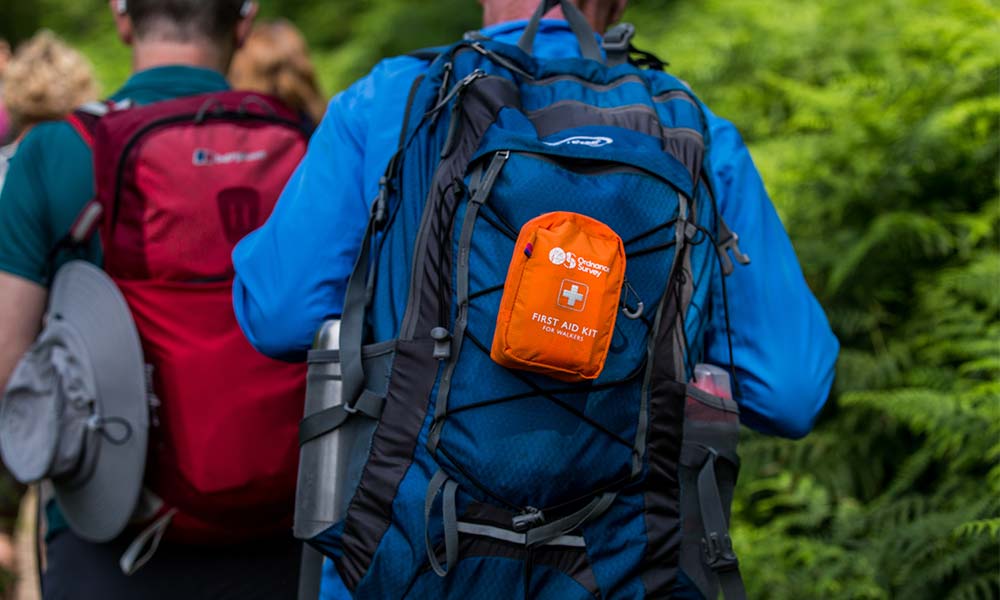
Park smart for a day on the hills
If that’s all too much, just consider three #BeAdventureSmart questions:
- Am I confident I have the knowledge and skills for the day?
- Do I know what the weather will be like?
- Do I have the right gear?
And there’s lots more advice and information for all sorts of outdoor pursuits at Adventure Smart.
Finally, Mountain Rescue England and Wales has an easy Fact File on its website that you can download, share with others and carry with you.




